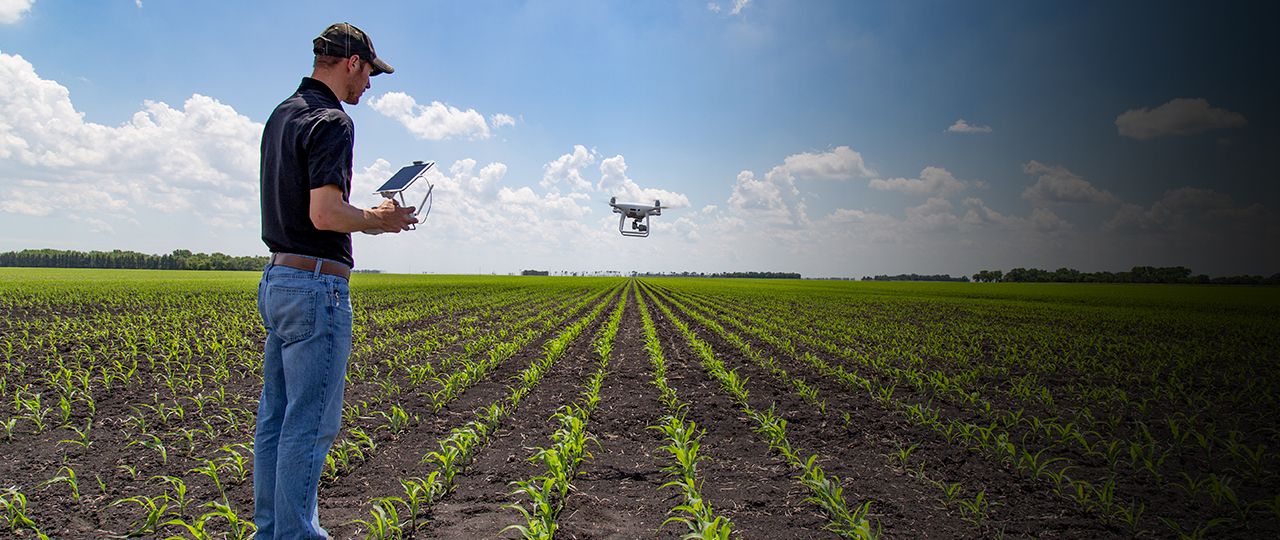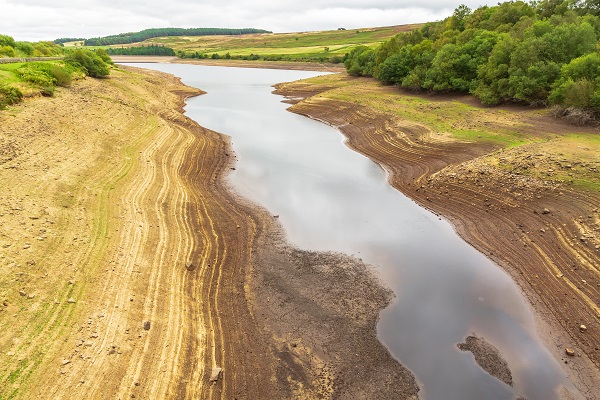Industrial Strategy: Building a Britain fit for the future
The Government published its Industrial Strategy in November 2017. Its aim is to create an economy that boosts productivity and earning power throughout the UK.
To do this, the Government has identified ‘five foundations’: ideas, people, infrastructure, business environment and places. The key policies that have been announced under each foundation area are listed below.
While this may not seem relevant to rural businesses and farming in particular, agriculture is a high profile element of the Industrial Strategy. Michael Gove has repeatedly stressed that a healthy environment is critical to maintaining economic growth – it is an enabler of growth, not an impediment as some have seen it in the past. For agriculture, the focus of the Industrial Strategy will be on the use of technology and precision farming techniques to increase agricultural productivity and reduce environmental impacts.
The Industrial Strategy also committed to establishing a new Food and Drink Sector Council, as one of three new Industrial Strategy programmes in Clean Growth; its aim is to lead work across the whole food chain to secure the UK’s position as a leader in safe and high-quality food and drink. This includes prioritising skills development and training in the food chain, including agriculture.
The Industrial Strategy is also a channel for funding for farming and rural businesses: highly efficient precision agriculture will be supported through the Industrial Strategy Challenge Fund programme called Transforming food production. This was confirmed in the Government’s consultation document on the future for food, farming and the environment .
It is likely that policies to boost business in rural areas will be an element of the ‘mainstream’ industrial policies, with the policies ‘rural proofed’, rather than having separate rural policies as we do now, through the Rural Development Programme for England. This approach is known as ‘mainstreaming’ and there is some concern among rural organisations that it may lead to policies less suited to rural needs and possibly lower funding too.
However, the Government does recognise that businesses in some rural areas face particular challenges, including reduced physical and digital connectivity; this was acknowledged in the consultation document on food, farming and the environment. But, as stated above, these rural challenges will be addressed through ‘mainstream’ policies such as the UK Shared Prosperity Fund and the Industrial Strategy.
The challenge for the Government is to translate the strategy into effective action – a much harder trick.
The Industrial Strategy is already under fire for lack of delivery and even strategy! Lord Adonis, who was the chairman of the National Infrastructure Commission until December 2017, has criticised the Government’s regulators, like Ofcom, for not being tough enough on private sector operators to deliver fast broadband and 4G and 5G mobile telecom. He has also challenged the Government to articulate clear strategies on policies including energy – saying that you cannot get a coherent answer.
Key policies under each foundation area
Ideas
- Raise total research and development (R&D) investment to 2.4 per cent of GDP by 2027
- Increase the rate of R&D tax credit to 12 per cent
- Invest £725m in new Industrial Strategy Challenge Fund programmes to capture the value of innovation
People
- Establish a technical education system that rivals the best in the world to stand alongside our world-class higher education system
- Invest an additional £406m in maths, digital and technical education, helping to address the shortage of science, technology, engineering and maths (STEM) skills
- Create a new National Retraining Scheme that supports people to re-skill, beginning with a £64m investment for digital and construction training
Infrastructure
- Increase the National Productivity Investment Fund to £31bn, supporting investments in transport, housing and digital infrastructure
- Support electric vehicles through £400m charging infrastructure investment and an extra £100m to extend the plug-in car grant
- Boost our digital infrastructure with over £1bn of public investment, including £176m for 5G and £200m for local areas to encourage roll out of full fibre networks
Business Environment
- Launch and rollout Sector Deals – partnerships between government and industry aiming to increase sector productivity. The first Sector Deals are in life sciences, construction, artificial intelligence and the automotive sector.
- Drive over £20bn of investment in innovative and high potential businesses, including through establishing a new £2.5bn Investment Fund, incubated in the British Business Bank
- Launch a review of the actions that could be most effective in improving the productivity and growth of small and medium-sized businesses, including how to address what has been called the ‘long tail’ of lower productivity firms
Places
- Agree Local Industrial Strategies that build on local strengths and deliver on economic opportunities
- Create a new Transforming Cities fund that will provide £1.7bn for intra-city transport. This will fund projects that drive productivity by improving connections within city regions
- Provide £42m to pilot a Teacher Development Premium. This will test the impact of a £1000 budget for high quality professional development for teachers working in areas that have fallen behind
Agriculture in the Industrial Strategy
‘…intelligent algorithms applied to data on atmospheric conditions and soil moisture could dramatically reduce the amount of water needed for agriculture.’ (Page 41)
‘We have world leading capabilities in areas including electric vehicle manufacture, offshore wind, smart energy systems, sustainable construction, precision agriculture and green finance.’ (Page 43)
‘We will put the UK at the forefront of the global move to high-efficiency agriculture. Rising global demand for food and water is increasing the need for agriculture that produces more from less. Our new ‘Transforming food production: from farm to fork’ programme will put the UK at the forefront of advanced sustainable agriculture. Over the coming years, as we replace the Common Agricultural Policy, we will increase the incentives for investment in sustainable agriculture, helping to grow the markets for innovative technologies and techniques. With powers set to return from the EU, the UK government is in discussions with the devolved administrations over future arrangements. Our work will develop in line with the outcome of those discussions.’ (Page 47)
‘Transforming food production – The world will need 60 per cent more food by 2050 to allow us to feed 9 billion people, while demand for water is expected to rise by 20 per cent in the agriculture sector alone. For this to be possible, the way we produce our food needs to be significantly more efficient and sustainable. By using precision technologies, we can make that a reality: transform food production whilst reducing emissions, pollution, waste and soil erosion. By putting the UK at the forefront of this global revolution in farming, we will deliver benefits to farmers, the environment and consumers whilst driving growth, jobs and exports.’ (Page 74)
‘…we are now announcing three new Industrial Strategy programmes in Clean Growth across energy, construction and agriculture. NB All wave 2 programmes are subject to final business case when further details on funding will be made available.’ (Page 144)
CONTACT US
James Farrell
Head of Rural
james.farrell@struttandparker.com
01423 706770
Will Gemmill
Head of Farming
will.gemmill@struttandparker.com
01223 459471
Jason Beedell
Head of Rural Research
jason.beedell@struttandparker.com
07795 651493






